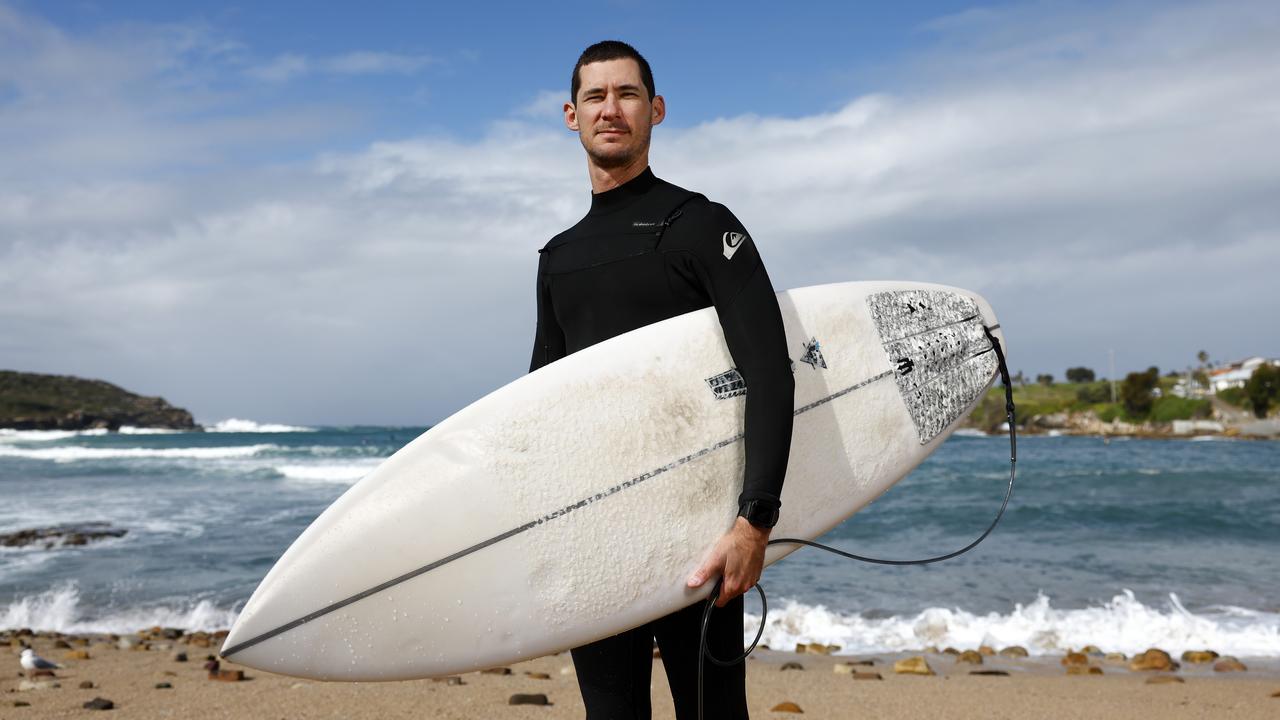Shark nets to be removed from NSW beaches early as shark mitigation consults begin
The controversial shark nets erected across Sydney beaches each year will be taken down early this summer as the future of the program is decided. Find out why.
Shark nets on NSW beaches will be taken down one month earlier than usual this summer in a controversial move as the Minns government paves the way to give local councils the choice to scrap nets entirely if they can guarantee human safety.
In response to concerns about the danger of shark nets on marine life, the government will put up the nets this summer but will introduce measures including placing lights on nets to deter turtles and monitoring them more frequently with drones to see if any animals have been caught.
The nets will be removed on March 31, one month earlier than usual in order to avoid the beginning of the turtle migration season.
The Minns government is preparing a series of consultations with coastal councils with the view to giving them the choice as to how to keep their beaches safe, including potentially scrapping shark nets in the future.

This means some councils from Newcastle to Wollongong, where the meshing program is currently in place, could elect to scrap the nets, while others retain them. Waverley council, which has long called for the abolition of shark nets, will likely ask to have them removed in any future consultation, meaning Bondi Beach may not have nets.
But Waverley councillor Sally Betts said the nets should not be removed until the new technology is up to scratch.
“We need to see more data that the SMART drumlines and drones are working,” she said.
“I think we’re close to it though, our technology is improving daily.”
A sophisticated program of baited SMART drumlines, listening stations and drone surveillance would continue off the NSW coast.
These technologies are already in place and used with shark nets on 51 beaches. Nets are also fitted with acoustic warning devices, including dolphin pingers and whale alarms designed to deter the creatures.
There has only been one fatal shark attack on a netted beach since their inception between Newcastle and Wollongong in 1937, and none in Sydney. The attack occurred at Merewether beach in Newcastle in 1951.
The government is trying to reduce the bycatch of nets, which snare hundreds of marine animals each year.

A new Department of Primary Industries report shows a total of 255 marine animals were caught in shark nets off the NSW coast during 2023/24. Of this, only 15 were target sharks. Only 36 per cent of all animals caught were released alive.
Instead, 65 of the animals caught were threatened species including 13 green turtles, five bottlenose dolphins and one humpback whale. More than 90 rays and 29 marine turtles were also caught. The full report will be released on Thursday.
Yet, new NSW government data has put a financial cost on removing the nets, saying there would be an almost 15 per cent hit to tourism in the state if the fear of shark attacks increased. More than 14 per cent of respondents to the government survey said they would not visit or seriously reconsider visiting NSW should shark attacks rise.
Treasury analysis estimates responsible shark management is worth $187 million in net economic benefit. Whereas currently the cost of shark attacks to the NSW economy is $69.5m annually.

Agriculture Minister Tara Moriarty said councils would need to take responsibility for the safety of their community if they wish to negotiate on shark mitigation methods.
“It’s essential people are safe when they swim at the beach – we’ll be working with councils for what local safety arrangements will be in place,” she said.
NSW DPI shark programs leader Marcel Green said the changes this summer were the most significant made to the netting program in 40 years. He said his team under the changes would be checking the nets for wildlife almost everyday instead of every three days.
“The object is to reduce the interactions with endangered species, especially turtles and in the past few years we’ve had an increase in catch of endangered leatherback turtles,” he said.

Randwick Council, that is responsible for 10 beaches that span the coastline from Frenchmans Beach to Clovelly, has long been divided on scrapping the nets. While the council is open to net removal pending data on the effectiveness of other technologies, many councillors have strongly advocated for their removal. Many locals, however, want them to stay.
Coogee resident Sophie Kap has been swimming at Coogee beach for more than 20 years. While she doesn’t like the effect the nets have on local marine life she feels that the nets keep her safe.

Another Coogee resident John Smith, who regularly swims at the beach said the bycatch of nets was small compared to commercial fishing operations. He said the net kept swimmers safe.
“I feel that the local council should keep the nets in place – since they were introduced into Sydney in the 1930s they’ve been spectacularly successful,” he said.
“There hasn’t been a serious shark attack at a netted Sydney beach since then.”
Maroubra surfer Brad Chalmer, said a lot of surfers often surf in areas not protected by the nets.
“At Maroubra they’ve always got the drones and the listening stations, which send an alert when a shark is swimming in 500 metres of it – I get an alert almost everyday,” he said.
“I don’t know if the nets are needed anymore.”
Do you have a story for The Daily Telegraph? Message 0481 056 618 or email tips@dailytelegraph.com.au





